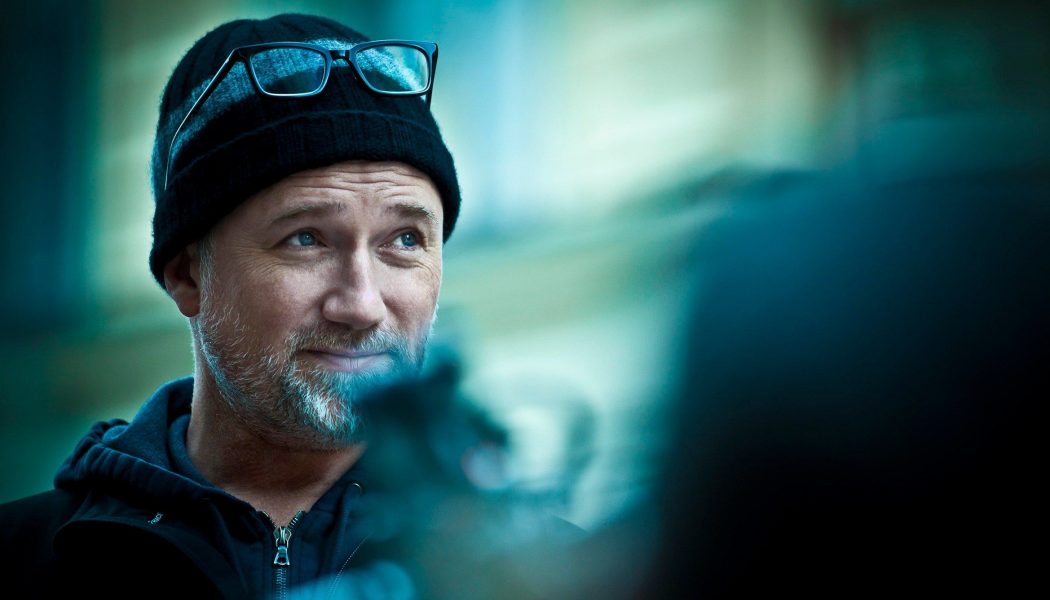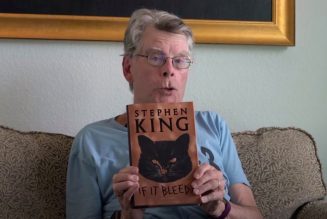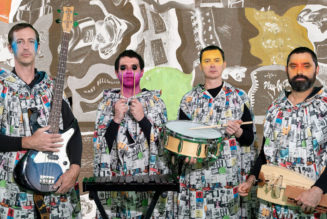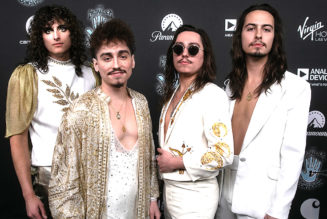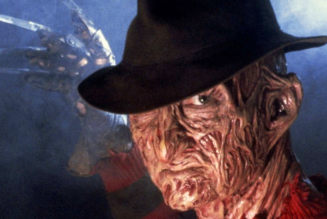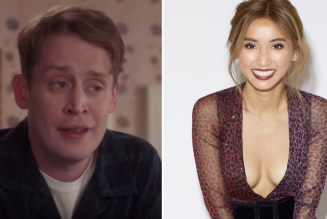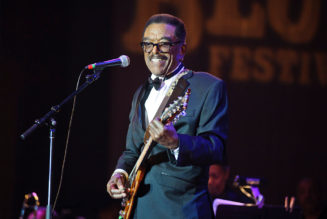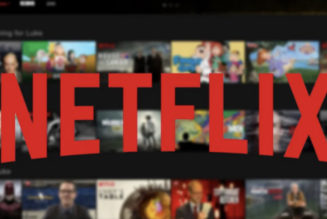“You’re naming us Best Composers of All Time, right,” Trent Reznor asks over the phone. His partner-in-crime Atticus Ross laughs on another line. He’s joking, of course, but he’s also not exactly out of his element. While all-time might be a stretch — at least, for now — the two are certainly in contention for the last decade. After all, it’s been a wild 10 years for Reznor and Ross, one that began with a deafening bang.
That big bang arrived at the 83rd Academy Awards in 2011, when Reznor and Ross triumphed over the likes of Hans Zimmer and Alexandre Desplat to win Best Original Score for David Fincher’s The Social Network. Their debut score wound up being an opening salvo as Hollywood came calling — and fast. Since then, they’ve amassed an eclectic resume that most composers spend decades building up.
They’ve worked with veterans (Peter Berg, Susanne Bier), they’ve gone indie (Jonah Hill, Trey Edward Schulz), they’ve even found success on television (HBO’s Watchmen). Yet none of their collaborations have felt more succinct than their ensuing work with Fincher. They’re the Bernard Herrmann to his Alfred Hitchcock, the Giovanni Fusco to his Michelangelo Antonioni, the John Williams to his Steven Spielberg.
It’s a fitting marriage, not only in sound, but also in mind. Fincher is a perfectionist — meticulous for details, particular with pictures — and that ideology is right in line with Reznor and Ross (see: Nine Inch Nails, How to Destroy Angels). The two parties are carnivorous for challenges, and their working relationship has been nothing but a series of hurdles. Hurdles that have only notched higher and higher as the years pass them.
Editors’ Picks
Mank is by far their most arduous collaboration yet. As if making a movie about the greatest movie of all time wasn’t tough enough, Reznor and Ross tasked themselves in using only period-authentic instruments from the 1940s. It’s a major departure from anything the two have done up to this point, eschewing their industrial minimalism for a dusty assortment of horns, swinging tempos, and nostalgia-tinged sounds.
Yet Fincher wasn’t the only call Reznor and Ross received, as far as 2020 movies are concerned. Pixar also rang for their latest spirited venture, Soul. Working alongside Inside Out director Pete Docter, the two composers dove headfirst into the sprawling, animated underworld. Together, they dreamed up a specific piece of music for each one of the film’s imaginative locales: The Great Before, The Great Beyond, The Astral Plane, and The You Seminar.
Editors’ Picks
So, yes, it’s been a year for Reznor and Ross. In celebration, Consequence of Sound spoke to the award-winning composers about their outstanding run through the past and purgatory. Together, they weighed in on their long-storied history with Fincher, flexing new muscles with old instruments, the differences in working with animation, and past scores that inspired them. Needless to say, there are many decades to come.
On Working with David Fincher
David Fincher
” data-medium-file=”https://consequenceofsound.net/wp-content/uploads/2019/07/david-fincher.jpg?quality=80&w=300″ data-large-file=”https://consequenceofsound.net/wp-content/uploads/2019/07/david-fincher.jpg?quality=80&w=806″ loading=”lazy” class=”size-large wp-image-948934″ src=”https://consequenceofsound.net/wp-content/uploads/2019/07/david-fincher.jpg?quality=80&w=806″ alt=”David Fincher announces first movie in five years” width=”806″ height=”471″ srcset=”https://consequenceofsound.net/wp-content/uploads/2019/07/david-fincher.jpg 2338w, https://consequenceofsound.net/wp-content/uploads/2019/07/david-fincher.jpg?resize=300,175 300w, https://consequenceofsound.net/wp-content/uploads/2019/07/david-fincher.jpg?resize=768,448 768w, https://consequenceofsound.net/wp-content/uploads/2019/07/david-fincher.jpg?resize=1024,598 1024w, https://consequenceofsound.net/wp-content/uploads/2019/07/david-fincher.jpg?resize=1536,897 1536w, https://consequenceofsound.net/wp-content/uploads/2019/07/david-fincher.jpg?resize=2048,1196 2048w, https://consequenceofsound.net/wp-content/uploads/2019/07/david-fincher.jpg?resize=807,471 807w” sizes=”(max-width: 806px) 100vw, 806px”><img aria-describedby="caption-attachment-948934" data-attachment-id="948934" data-permalink="https://consequenceofsound.net/2019/07/david-fincher-gary-oldman-mank/david-fincher/" data-orig-file="https://consequenceofsound.net/wp-content/uploads/2019/07/david-fincher.jpg?quality=80" data-orig-size="2338,1365" data-comments-opened="1" data-image-meta="{"aperture":"0","credit":"","camera":"","caption":"","created_timestamp":"0","copyright":"","focal_length":"0","iso":"0","shutter_speed":"0","title":"","orientation":"0"}" data-image-title="david-fincher" data-image-description="
David Fincher
” data-medium-file=”https://consequenceofsound.net/wp-content/uploads/2019/07/david-fincher.jpg?quality=80&w=300″ data-large-file=”https://consequenceofsound.net/wp-content/uploads/2019/07/david-fincher.jpg?quality=80&w=806″ loading=”lazy” class=”size-large wp-image-948934″ src=”https://consequenceofsound.net/wp-content/uploads/2019/07/david-fincher.jpg?quality=80&w=806″ alt=”David Fincher announces first movie in five years” width=”806″ height=”471″ data-lazy-srcset=”https://consequenceofsound.net/wp-content/uploads/2019/07/david-fincher.jpg 2338w, https://consequenceofsound.net/wp-content/uploads/2019/07/david-fincher.jpg?resize=300,175 300w, https://consequenceofsound.net/wp-content/uploads/2019/07/david-fincher.jpg?resize=768,448 768w, https://consequenceofsound.net/wp-content/uploads/2019/07/david-fincher.jpg?resize=1024,598 1024w, https://consequenceofsound.net/wp-content/uploads/2019/07/david-fincher.jpg?resize=1536,897 1536w, https://consequenceofsound.net/wp-content/uploads/2019/07/david-fincher.jpg?resize=2048,1196 2048w, https://consequenceofsound.net/wp-content/uploads/2019/07/david-fincher.jpg?resize=807,471 807w” data-lazy-sizes=”https://consequenceofsound.net/wp-content/uploads/2019/07/david-fincher.jpg 2338w, https://consequenceofsound.net/wp-content/uploads/2019/07/david-fincher.jpg?resize=300,175 300w, https://consequenceofsound.net/wp-content/uploads/2019/07/david-fincher.jpg?resize=768,448 768w, https://consequenceofsound.net/wp-content/uploads/2019/07/david-fincher.jpg?resize=1024,598 1024w, https://consequenceofsound.net/wp-content/uploads/2019/07/david-fincher.jpg?resize=1536,897 1536w, https://consequenceofsound.net/wp-content/uploads/2019/07/david-fincher.jpg?resize=2048,1196 2048w, https://consequenceofsound.net/wp-content/uploads/2019/07/david-fincher.jpg?resize=807,471 807w”>
David Fincher
Trent Reznor: David initiated us into the world of composing for picture with The Social Network 10 years ago. It’s been an intimidating journey, because it wasn’t really a career trajectory that we had paved a lot of way towards. It just came upon us, and we took advantage of it. And we found that David as a collaborator was the most generous, kind, supportive, and encouraging partner one could ever hope for. We didn’t realize that at the time of The Social Network, but we realized shortly thereafter that we were in such a privileged place because of the culture he was able to establish from his own clout, meaning there were no producers or studios interfering. It was really just us, David, and his creative team in an environment where you were encouraged: “Let’s make the very best thing we can. Let’s put everything we have on the screen, and let’s push each other.”
We came out of that first film, The Social Network, really exhilarated. This was before there were any awards or recognition from the outside world. We knew we had stumbled into something, a really creatively excellent environment outside the world of rock and roll and Nine Inch Nails. It was a really intense way to kind of mutate our skill set into a different arena. It was great. And we were thrilled when David said, “Hey, I’m working on The Girl with the Dragon Tattoo. Let’s keep this going. Fantastic!” That turned us down a completely different adventure for the next 18 months or so.
And we’re always hoping that the phone rings when and if he feels we’re appropriate for his next project, because now we’re friends. Now, there is a camaraderie and an intuitive bond between all of us. By “us,” I mean David and also sound designer Ren Klyce and Kirk Baxter, the editor. We have a very open community that is not afraid to say, “This sucks,” and are quite often blown away by what comes back from the other people. So, it really has become something we’re very proud and grateful to be involved in. And I think as we worked on other projects, and we’ve seen different cultures, mainly dictated by the directors or showrunners of these projects, we can see things completely differently with different groups. It’s made us really cherish working with David.
Atticus Ross: It’s also incredible when you think how fortunate we are to work with what one could argue is the greatest living director. He’s certainly one of them, and to have this kind of 10-year relationship that starts off with one film in one place, and here we are 10 years later in an arena that couldn’t be more different from The Social Network one. But still getting that call and still having an incredible eight months of experience … these are the kind of memories, not to sound morose or anything, that you take with you to the grave. Because they have been big moments. They have been big, creative journeys and incredible learning experiences. Frankly, it’s been a privilege.
On Scoring a Film That Takes Place in the Big Band Era
David Fincher’s Mank Is a Dense, Technically Marvelous Ode to Old Hollywood: Review
” data-medium-file=”https://consequenceofsound.net/wp-content/uploads/2020/11/mank-1.jpg?quality=80&w=300″ data-large-file=”https://consequenceofsound.net/wp-content/uploads/2020/11/mank-1.jpg?quality=80&w=806″ loading=”lazy” class=”size-large wp-image-1083694″ src=”https://consequenceofsound.net/wp-content/uploads/2020/11/mank-1.jpg?quality=80&w=806″ alt=”David Fincher’s Mank Is a Dense, Technically Marvelous Ode to Old Hollywood: Review” width=”806″ height=”453″ srcset=”https://consequenceofsound.net/wp-content/uploads/2020/11/mank-1.jpg 3840w, https://consequenceofsound.net/wp-content/uploads/2020/11/mank-1.jpg?resize=300,169 300w, https://consequenceofsound.net/wp-content/uploads/2020/11/mank-1.jpg?resize=768,432 768w, https://consequenceofsound.net/wp-content/uploads/2020/11/mank-1.jpg?resize=1024,576 1024w, https://consequenceofsound.net/wp-content/uploads/2020/11/mank-1.jpg?resize=1536,864 1536w, https://consequenceofsound.net/wp-content/uploads/2020/11/mank-1.jpg?resize=2048,1152 2048w, https://consequenceofsound.net/wp-content/uploads/2020/11/mank-1.jpg?resize=807,454 807w” sizes=”(max-width: 806px) 100vw, 806px”><img aria-describedby="caption-attachment-1083694" data-attachment-id="1083694" data-permalink="https://consequenceofsound.net/2020/11/film-review-mank/mank-1/" data-orig-file="https://consequenceofsound.net/wp-content/uploads/2020/11/mank-1.jpg?quality=80" data-orig-size="3840,2160" data-comments-opened="1" data-image-meta="{"aperture":"0","credit":"","camera":"","caption":"","created_timestamp":"0","copyright":"","focal_length":"0","iso":"0","shutter_speed":"0","title":"","orientation":"0"}" data-image-title="mank (1)" data-image-description="
David Fincher’s Mank Is a Dense, Technically Marvelous Ode to Old Hollywood: Review
” data-medium-file=”https://consequenceofsound.net/wp-content/uploads/2020/11/mank-1.jpg?quality=80&w=300″ data-large-file=”https://consequenceofsound.net/wp-content/uploads/2020/11/mank-1.jpg?quality=80&w=806″ loading=”lazy” class=”size-large wp-image-1083694″ src=”https://consequenceofsound.net/wp-content/uploads/2020/11/mank-1.jpg?quality=80&w=806″ alt=”David Fincher’s Mank Is a Dense, Technically Marvelous Ode to Old Hollywood: Review” width=”806″ height=”453″ data-lazy-srcset=”https://consequenceofsound.net/wp-content/uploads/2020/11/mank-1.jpg 3840w, https://consequenceofsound.net/wp-content/uploads/2020/11/mank-1.jpg?resize=300,169 300w, https://consequenceofsound.net/wp-content/uploads/2020/11/mank-1.jpg?resize=768,432 768w, https://consequenceofsound.net/wp-content/uploads/2020/11/mank-1.jpg?resize=1024,576 1024w, https://consequenceofsound.net/wp-content/uploads/2020/11/mank-1.jpg?resize=1536,864 1536w, https://consequenceofsound.net/wp-content/uploads/2020/11/mank-1.jpg?resize=2048,1152 2048w, https://consequenceofsound.net/wp-content/uploads/2020/11/mank-1.jpg?resize=807,454 807w” data-lazy-sizes=”https://consequenceofsound.net/wp-content/uploads/2020/11/mank-1.jpg 3840w, https://consequenceofsound.net/wp-content/uploads/2020/11/mank-1.jpg?resize=300,169 300w, https://consequenceofsound.net/wp-content/uploads/2020/11/mank-1.jpg?resize=768,432 768w, https://consequenceofsound.net/wp-content/uploads/2020/11/mank-1.jpg?resize=1024,576 1024w, https://consequenceofsound.net/wp-content/uploads/2020/11/mank-1.jpg?resize=1536,864 1536w, https://consequenceofsound.net/wp-content/uploads/2020/11/mank-1.jpg?resize=2048,1152 2048w, https://consequenceofsound.net/wp-content/uploads/2020/11/mank-1.jpg?resize=807,454 807w”>
Mank (Netflix)
Reznor: Fuck, yes, [composing for Mank] was challenging. I think it’s important to start with the choices made, or not made, to do what’s right for the story that David’s trying to tell. We don’t get into the “let’s see if we could come up with this thing so we can show off” kind of attitude. It’s always us trying to just put our ego out of the picture. Let’s truly think and absorb the storytelling. Let’s try to take as many cues as we can from not only the scripts, but the way David talks about it or what other material might be available when the composition starts. It might be stills. It might be footage shot. Any input we can hear to kind of understand how he’s trying to tell the story and what he’s trying to get across emotionally from the role of music in the picture.
And this seemed pretty clear, but David wouldn’t say that he needed us to do an orchestra or big band. It was always, “It could be this. It could be that. It could be a piano, or it could be a synthesizer. I don’t know. I want to see what you guys think.” And I think that kind of openness … It was very similar to working on The Social Network. He said, “I kinda hear it synthy, but I don’t know.” And there’s an awesome freedom and an awesome, intimidating responsibility that comes with that freedom. And in this case, we thought long and hard about it. We tried some things, and it seemed pretty clear. Our main directive from David was that the film should feel like something that we found in the archives that’s been sitting on a shelf since 1940. “I’m going to film it in black and white. We might mix in some mono, but we don’t have to play by those rules.” Okay, so we could bring in digital reverb if we wanted to, or we could play against it and go completely synthetic.
But as we started down the path of composition, it was a bit intimidating because the orchestra and the big band are two different sorts of instruments for us to consider. What was on our side was we had quite a bit of time. And, the way I remember it, the real initial composition took place about a year ago, towards the holidays. But we had known about this for several months ahead of that … maybe as early as summer of that year. And we’d had another couple of projects sold for Pixar and Watchmen for HBO and Nine Inch Nails were on tour. We had enough time that we could spread the panic across several months before realizing, “Oh, shit. It’s not six months away. Now it’s four months away. Now, it’s two weeks, eight days. We’ve got to get our shit together.”
During that time, we spent a lot of time really absorbing the music of the era, watching and kind of analyzing Bernard Herrmann scores, which was another point of reference. This is a companion piece to Citizen Kane. Perhaps it could feel inspired by dot dot dot … And when we actually sat down and started exchanging musical compositions, before we had any picture, the results surprised us. They sounded really good right off the bat. We believe in doing the thing that we can do, which is translate emotion into sound. And we’re just using a different tool to achieve that. If we thought about it that way, suddenly, it didn’t seem quite so impossible or intimidating. There’s plenty of time for revision. So, we initially sent David a batch of music early this year, probably in January. It might have been February, maybe 90 minutes of stuff. It was kind of half-orchestra and half-big band arrangements. And a little bit of solo piano stuff.
And Atticus reminded me … I can’t tell you how great it feels so receive that text in all caps: “I WANT TO USE IT ALL”. Because they were out shooting at the time. It really felt like validation that we’ll be able to pull this off. And then the real work began of actually scoring and getting into it.
Ross: And I’d only add, because it’s something I’m proud of … we did demos for the whole movie that you could play. And they did screen the film prior to us going out to the orchestra, and you could play the film as it is now with the demos. Basically, we would score each scene with samples and go through the process of David’s notes, which, in this case, were pretty specific, and get to a point where, like I said, the film would play so that people actually got used to the demos. I don’t know if you checked it out, but we did release a version of the album that does have a few of the demos on them. And it’s obviously different when you go out and record with the live musicians, but they sound pretty darn good. And then, of course, David’s got the whole thing from when we did go out and try to record an orchestra and big band in the middle of lockdown, which is a whole other set of problems.
Read ahead for their thoughts on working with Pixar and their favorite scores…
